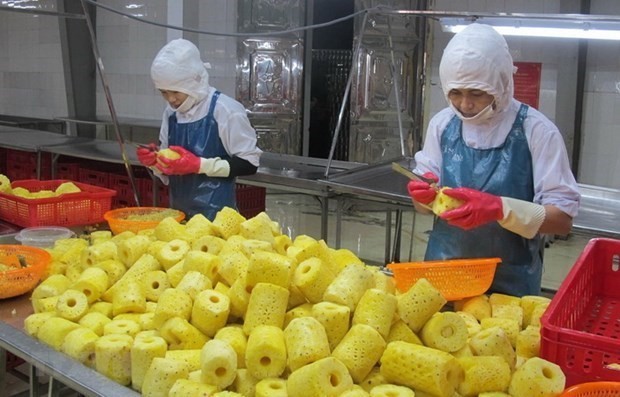
Vietnam advised to produce green, clean goods to win over European consumers
Latest
 |
| Vietnam advised to produce green, clean goods to win over European consumers: Illustrative image. (Photo: VNA) |
At a seminar on exporting to the market held in Ho Chi Minh City last week, EuroCham Vice President Jean-Jacques Bouflet said the EU market is interested in the production processes.
“So enterprises must anticipate this trend to accelerate the effective implementation of the EU-Vietnam Free Trade Agreement (EVFTA).”
According to EuroCham, the EU has a set of policies and actions called the European Green Agreement, whose goal is that its economy will be more sustainable and carbon neutral. The action plan also seeks to reduce pesticide use by 50% and increase the share of lands under organic crops to 25% by 2030.
“This means pesticides will be banned in the EU, and residue levels will gradually decrease in the coming years. Vietnamese businesses need to pay attention to this organic consumption trend in their long-term development strategy,” Bouflet said.
He warned that the EU constantly tinkers with regulations, and exporters need to remain on top of the changes.
To enjoy preferential tariffs, Vietnamese goods exported to the EU must meet two basic conditions: comply with the required market sanitary and phytosanitary standards and meet the rules of origin.
Vegetables, processed foods, textiles, leather goods, chemicals, footwear, plastic products, and some others are mainly the product groups that need to comply with the rules of origin.
EuroCham also warned there is a gap between Vietnamese and international standards, pointing out that for instance Vietnam applies VietGap standards but global consumers prefer Global Gap, BAP and other international standards.
Bouflet said: “Vietnamese enterprises need to focus on EU standards. It will be difficult and costly in the beginning, but over the long term it will help penetrate the EU market sustainably.”
Access to the EU market would open doors to other markets, but it requires business leadership and Government support, he said.
Vietnam’s exports to the EU are worth around 40 billion USD a year.
























